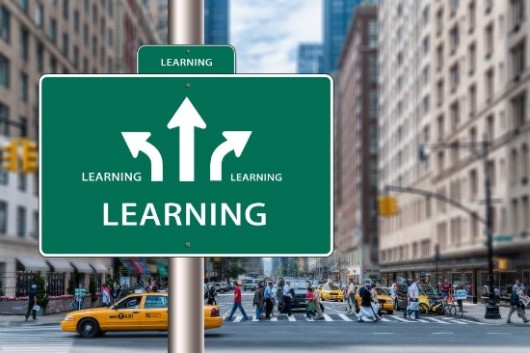Learning Tips

Class preparation and attendance
Coming to class – either in person or virtually – is only a part of your success. To succeed and spend less time studying because you study more efficiently, you need to be physically and mentally prepared to engage with the information presented to you during a class. Compare it to a basketball player. Showing up to a game is the first step, but that is not where the player’s role ends. During the game, the player needs to be able to focus on the game and be physically ready for it. So what should you concentrate on when preparing for a class?
Eat healthy - Even though junk food, coffee, candy, and soda might give you a temporary boost, you will soon feel tired and hungry again. Eating healthy meals and snacks that contain lean protein, vegetables, and fruits will give you the energy needed to accomplish all of your daily tasks. To find out more about how to eat healthy so that you are ready for a class, please visit the My Plate on Campus Toolkit
Exercise regularly - Exercising gives you energy throughout the day, and it can also prevent you from getting sick. Being sick will make you miss classes and get behind on your studies. A college student should get at least 2.5 hours of physical exercise each week.
Get enough sleep - Your body and your mind need sleep to recharge. Without enough sleep, you will be tired and you will not be able to concentrate on your school work. Everybody needs different amounts of time to sleep, but most of us should aim at getting eight hours of sleep every night. Some strategies to help you sleep better are: avoiding caffeinated beverages, heavy foods, and using electronic devices before bedtime.
Manage stress - Unknown situations, having several competing demands in your life, and relationships are just some of the factors that might contribute to your daily stress. Eating healthy, exercising regularly, and getting enough sleep will be your best tools in managing your stress. Some other strategies include getting organized, creating a good study environment, listening to music, and taking calming breaths. Talking to one of the SUNY Canton Counseling Center counselors might also be an avenue you'll want to explore.
Class attendance
As you might expect, it is very important to attend your classes. Not only because the instructor requires it, but because you have the opportunity to learn the materials in the classroom, which will mean less study time later. Being in the classroom – in person or online – you can ask questions that will help you better understand the topic, and the nature of the assignments you will complete. In addition, you will also interact with your instructor and other students and learn from them and let them learn from you.
What if I have to miss a class?
There will be situations when you will have to miss a class. Be proactive about it – ask your classmates to borrow class notes, ask if there were any announcements made that you shouldn't miss, talk to your instructor and find out what you can do to make up the lecture and learn what was presented. Make sure you catch up on all missed readings and assignments.
Class attendance strategies
To use your time in class to the fullest, you should be an active listener. What does that mean? To use your time in class to the fullest, you should be an active listener. What does that mean? To become an active listener, focus your attention on the speaker, ask clarifying questions, and take notes. In your mind, connect what is being said to what you already know. That way you are more likely to remember the new material.
Taking notes is very beneficial to your learning. In the notes, write down what is being said as it makes sense to you. Restate and paraphrase the information so that when you are studying from the notes, you can get back to the topic as you understood it during the class. Focus on capturing the key ideas and put them in your own words. If you write sentences down word-for-word, it is really only a recording of what is being said. When you connect the new information with what you already know and write concepts down in your own words, you know you are really learning.
To learn more about why you take notes, view the WHY and science of taking notes video. The Effective Note Taking website from Utah State University introduces you to effective note-taking strategies.

